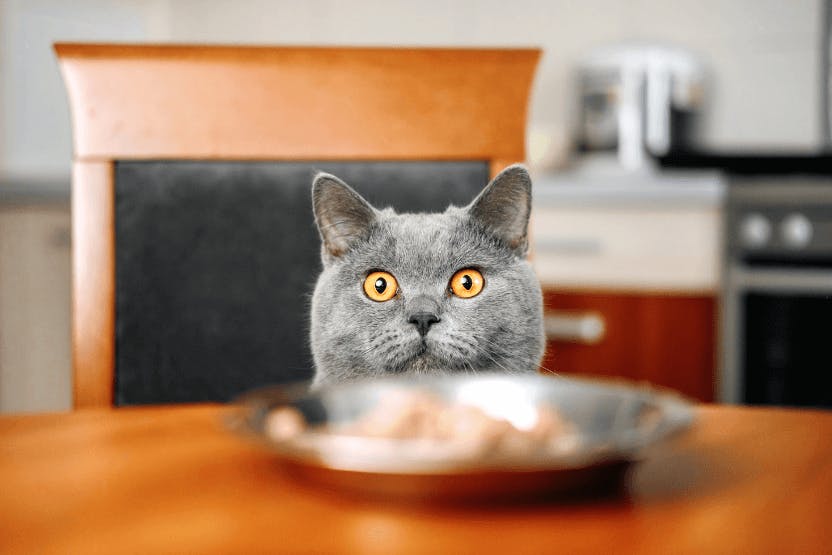- Home
- Dog Wellness
- How to Transition Your Cat to a New Diet

By Darlene Stott
Published: 03/11/2021, edited: 11/03/2023
Save on pet insurance for your pet
You don't have to choose between your pet and your wallet when it comes to expensive vet visits. Prepare ahead of time for unexpected vet bills by finding the pawfect pet insurance.
Do you have a cat showing their extra finicky side by refusing to eat their regular food? Is your kitten quickly growing and requires a move from kitten kibble to cat food for young furbaby’s? There are many reasons for changing your cat’s food, from a change in nutrition needs to a special diet for health reasons.
- A cat with a health problem such as urinary crystals or diabetes may require a diet change as part of their treatment plan
- Once kittens are 12 months old, they should be switched to an adult cat food
- Cats 7 years and older benefit from a switch to a senior or mature cat food
- Cats that have a sedentary lifestyle due to arthritis or injury will require a new food, different from what an active cat needs
- Cats who are pregnant or nursing need foods that provide extra energy
- Lack of appetite
- Refusal to eat
- Vomiting
- Gas
- Diarrhea
- Constipation
- Days 1 and 2: Mix 25% of the new cat food and 75% of the usual food your cat gets.
- Days 3 and 4: Change the mixture to 50% of the new food and 50% of the old food.
- Days 5 and 6: Fill your cat’s dish with 25% of the old food and 75% of the new diet.
- Day 7: Your cat can eat 100% of the tasty new fare!
- Stick to the same feeding time and place as always. Routine means a lot.
- Sprinkle the dry kibble on top of the wet food so your cat can adjust to the smell.
- Try mixing the dry food into the wet food.
- If the cat food is cold from the fridge, warm it up in the microwave. Check carefully that it is not too hot.
- Try adding Fortiflora, a palatable probiotic that can make the eagerly awaited edibles more appealing.
- Feed your cat wet food on a flat dish for easy licking.
- Engage your cat in fun play or a mentally-stimulating training session to build their appetite before feeding.
- Always store your kitty's food properly to ensure maximum freshness and quality.
Got more cat food questions? Chat with a veterinary professional today!

